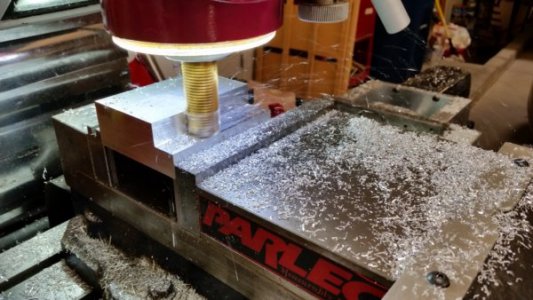- Joined
- Jul 20, 2014
- Messages
- 1,386
is it really necessary to buy high helix end mills made for aluminum? I’ve been getting by without them but thought of buying two.
Is anyone using them with better results?
Guhring also makes a Diver series for all type of milling slots. Ramping. Angles drilling etc.
Is anyone using them with better results?
Guhring also makes a Diver series for all type of milling slots. Ramping. Angles drilling etc.

